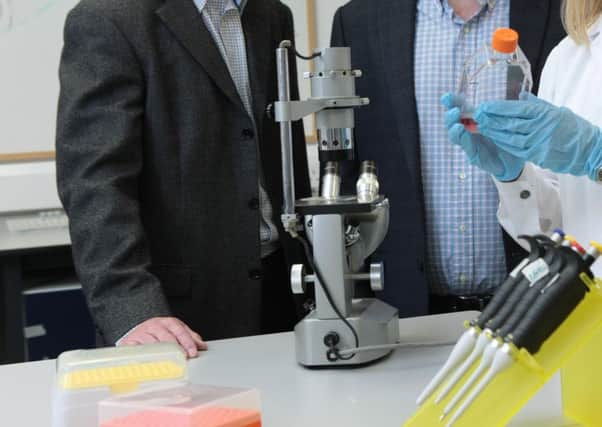Scotland’s only toxicology unit is cut despite surge in drug deaths in Falkirk


The toxicology unit at the University of Glasgow will no longer be sending reports to the Crown Office or the Procurator Fiscal after all parties failed to come to an agreement over an extension to the £1 million contract to provide the service.
At the moment the University’s unit – the only unit of its kind in the country – carries out reports on almost 90 per cent of drug-related deaths in Scotland, but that will now come to an end at the start of next year.
Advertisement
Hide AdAdvertisement
Hide AdThe announcement comes at a time when Scotland’s drugs death rate has risen to three times the rate for the UK and when the Falkirk area has seen the number of drug-related deaths increase from 16 in 2017 to 43 last year.
Across the Forth Valley area there were 72 drug deaths – double the number from 2017.
The decision not to award the contract extension has been met with disbelief and anger from union Unite and MSP Monica Lennon, shadow secretary for health, who claim the move will put the country’s efforts to fight the spike in drugs deaths at a significant disadvantage.
Unite, which represents the workers in the under threat toxicology unit, understands other institutions and universities have been approached about potentially providing the service.
Advertisement
Hide AdAdvertisement
Hide AdAlison MacLean, Unite regional industrial officer, said: “It is the only department in Scotland with the necessary capacity, knowledge and expertise to provide reports within weeks on drugs related deaths.
“It’s an outrage the workers were given little warning over the potential job losses, and Unite is doing everything we can to ensure this position is reversed. At a time when Scotland has the highest drugs related deaths in Europe, to lose this service would be untenable for public health and safety.
“The loss of the contract now means the necessary toxicology reports provided to the Crown Office and Procurator Fiscal Service are in danger of being significantly delayed, or potentially being outsourced outside Scotland.
“It is not uncommon for toxicology reports to take up to six months in England, while reports in Scotland are provided for in weeks. The University of Glasgow’s service also provides testing and early warning systems, and was due to take part in monitoring for the new heroin-assisted treatment programme to be introduced.”
Advertisement
Hide AdAdvertisement
Hide AdThe Scottish shadow health secretary is lodging a motion in the Scottish Parliament highlighting the potential crisis facing Scotland’s response to the drugs related death epidemic and calling for immediate action.
Ms Lennon’s motion stated: “That the Parliament recognises what it considers the important work of the University of Glasgow’s forensic toxicology service in providing reports for approximately 90 per cent of drug deaths in Scotland, recognises what it sees as the importance of this work in providing early warning systems that help reduce fatalities due to drug misuse.
“Further recognises the knowledge, experience and expertise of those involved, is seriously concerned the service is reportedly under threat due to what it understands is a failure to reach a contractual agreement between the Crown Office and Procurator Fiscal Service and the university.
“And considers such a failure and uncertainty impacts on the university’s staff, who currently provide this service, and calls on the Scottish Government to intervene to ensure Scotland retains a forensic toxicology service with at least the same level of knowledge, skills and experience as the current service.”
Advertisement
Hide AdAdvertisement
Hide AdShe added: “For this to be happening when Scotland is experiencing a drugs death emergency is absurd.”
A University of Glasgow spokesperson said: “We have undertaken a lengthy negotiation with the Crown Office but have been unable to agree a long-term extension to our current contract for toxicology services. We are working closely with the Crown Office to ensure minimal disruption from any change to provider.”
The Crown Office stated it was “actively engaging” with alternative providers for the provision of these essential services.